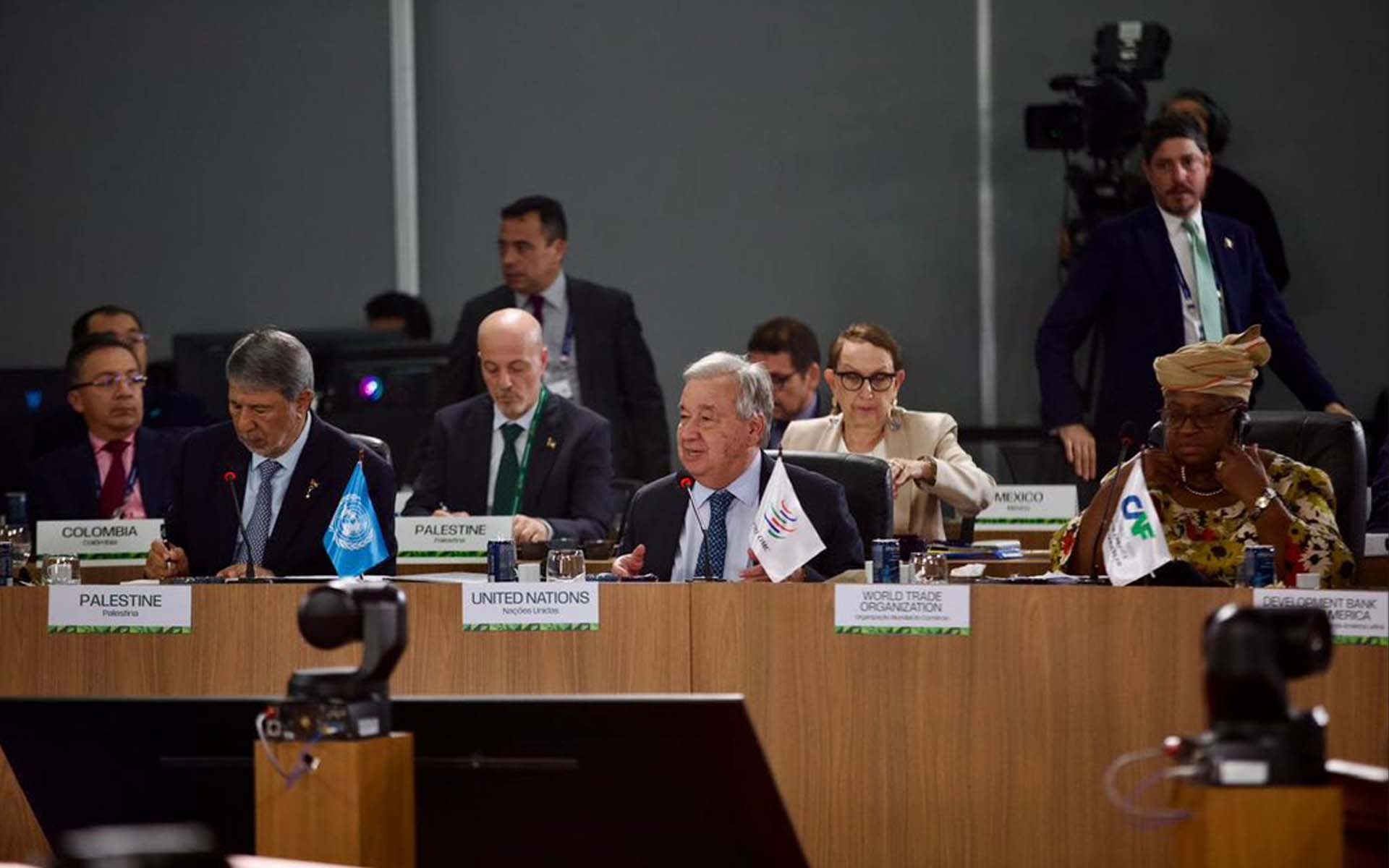

 23.04°C काठमाडौं
23.04°C काठमाडौं

Kathmandu: United Nations Secretary-General António Guterres has emphasized the urgent need for a multilateral, inclusive, and human rights-based approach to artificial intelligence (AI) governance. Speaking at the BRICS Summit held in Rio de Janeiro, Brazil, Guterres addressed leaders from Brazil, Russia, India, China, and South Africa, urging them to ensure AI benefits all, particularly developing countries.
“Artificial intelligence is reshaping economies and societies. The fundamental test is how wisely we will guide this transformation – how we minimize the risks and maximize the potential for good,” he said. Guterres also voiced concern over the weaponization of AI amid escalating global tensions, pointing to ongoing conflicts in Gaza, Ukraine, Sudan, and other regions as pressing challenges to global peace.
According to a Press Release issued by the United Nations, the UN Secretary-General stressed that AI must not become “a club of the few,” and called for equitable participation of the Global South in shaping AI policies. “Artificial intelligence needs a multilateral response grounded in equity and human rights,” he stated.
Highlighting the Pact for the Future, a UN General Assembly-endorsed framework, Guterres proposed the establishment of an independent international scientific panel on AI to offer impartial, evidence-based guidance to all member states. The Pact also recommends holding regular global dialogues on AI under UN coordination to ensure transparent, inclusive governance.
The Secretary-General announced plans to soon present a report suggesting voluntary financing mechanisms to build AI capacities in developing nations. He urged BRICS nations to support the initiative.
However, Guterres noted that technological governance cannot be separated from broader systemic reforms. “We are in a multipolar era. Power relations are shifting,” he said, calling for modernization of outdated institutions like the UN Security Council and the international financial system – originally built for a “bygone age.”
Referencing outcomes from the recent Financing for Development Conference in Seville, he stressed the need for greater Global South participation in economic governance, effective debt restructuring, and increased concessional funding through multilateral development banks.
“To fully harness AI’s potential and bridge the digital divide, we must address structural inequalities,” he said. “Cooperation is humanity’s greatest innovation — and trust begins with all countries respecting international law without exception.”
Source: United Nations